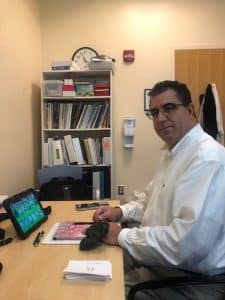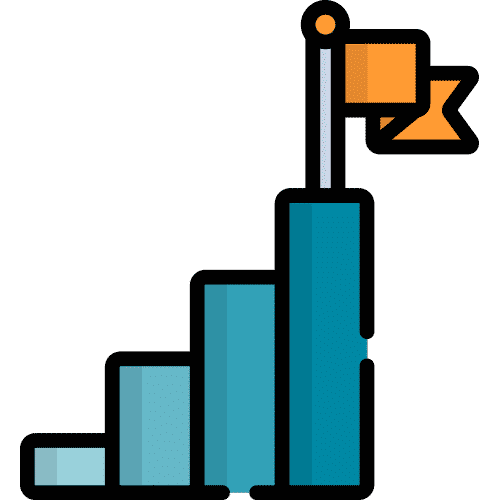Determined Stroke Survivor Takes on Aphasia with AAC

Michael, then in his early 50s, arrived at his finance job in Chesapeake, Virginia, just like he would most mornings. Shortly after 6 a.m., he had a stroke. Alone and in a daze, Michael eventually left work, making the hour-long drive home.
“When I got home, my wife thought I was crazy, because I wasn’t talking right,” said Michael. “She called the paramedics, and five minutes after they arrived, I went into a coma, and I didn’t remember anything for the next day and a half. And right after the coma, I wanted to take a shower, and the nurse couldn’t believe that I was alive. I could only say three words.”
Michael stayed in the hospital for two weeks. Like a third of people who have strokes, he had aphasia. When he returned to his home, he retained only 20% of his vocabulary.
Aphasia doesn’t only affect the person who acquires it. Approximately 4 in 10 caregivers of people with aphasia report worsening relationships with their partner. Shortly after he had his stroke, Michael and his wife separated.
In the months that followed, Michael worked with two speech therapists — one of whom recommended a Lingraphica Touch Talk. Eight months into his recovery, Michael received his own AAC device. Since that time, Michael says he “works on it every stinking day. I use it for everything — words, spelling, vocabulary, reading material — everything. It is a Godsend!”
In addition to the speech language therapy that he has received, Michael works every single day for three to four hours on his own with his TouchTalk. His goal is to get back to normal again.
“For the first two months, people could only understand about half of what I was trying to say. Now, I have 80% of my language and speaking back,” said Michael. “I live by myself with no caregiver, so I have to be able to communicate with others…I just have no choice. But even if I did have a choice, I would work this hard. It is that important to me. I have recovered so much that people meet me and have no idea that I had a stroke or have aphasia. Half the people I meet think I’m completely normal.
“I’m just so thrilled with my TouchTalk…it has opened a whole new world to me, and I can connect to it finally. I can now talk to people just like everyone else,” he said. And in a resolute and determined tone, Michael said, “I am going to overcome it ALL! I’m going to have to keep up with my reading and spelling, and I know I will have to do that for the rest of my life, and I’m OK with that.”
Michael’s wish is that everyone who has aphasia as a result of stroke would put in the time and practice on a Lingraphica device that it takes to be able to communicate like he can…because, “it’s absolutely worth it!”



